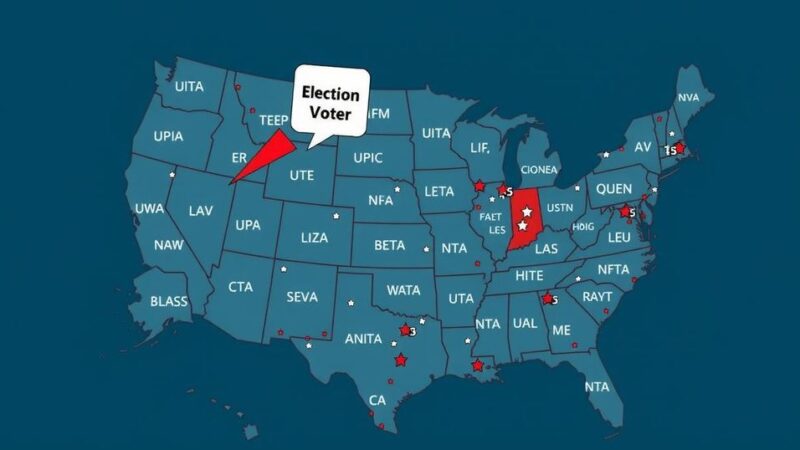Ohio Senator JD Vance won the vice-presidential debate against Minnesota Governor Tim Walz, who struggled to defend Vice President Kamala Harris. The moderators’ bias was evident, focusing on issues that would challenge Vance while neglecting key national crises. This debate is expected to provide momentum to the Trump-Vance campaign, as Harris’s vulnerabilities continue to surface leading up to the election.
The vice-presidential debate held on October 1, featuring Ohio Senator JD Vance and Minnesota Governor Tim Walz, revealed a clear disparity in performance between the two candidates. Senator Vance demonstrated composure and analytical prowess, effectively outlining his positions and dismissing Walz’s attempts to defend Vice President Kamala Harris’s recent temporary shift in ideology. Governor Walz faced significant challenges, including the burden of his party’s recent track record under the Biden administration, which has been marred by numerous controversies and crises over the past three and a half years. Moderators Nora O’Donnell and Margaret Brennan, it was reported, failed to maintain an impartial stance throughout the debate, focusing on issues that could potentially undermine Vance, such as climate change and abortion, while neglecting critical topics like the administration’s delayed response to Hurricane Helene. Vance managed to counter these challenges effectively, demonstrating not only his grasp of the issues but also maintaining a calm and magnanimous demeanor, thereby quelling any narratives portraying him as aggressive. The ramifications of this debate suggest that Vance’s performance will likely invigorate the Trump-Vance campaign as the election approaches. In contrast, Vice President Harris’s strategy to rely on Walz’s performance to bolster her image appeared misguided, emphasizing her ongoing vulnerabilities. The debate occurred in the context of a deteriorating situation following Hurricane Helene and escalating tensions in the Middle East, which further destabilize the Democratic campaign leading up to the election.
The article discusses the implications of a recent vice-presidential debate between JD Vance and Tim Walz, contextualizing it within a broader narrative surrounding the Biden administration’s challenges and Harris’s questionable political strategies. The piece underscores the issues of media bias and the political landscape’s impact on voter perception leading to the upcoming elections. It highlights the mounting crises faced by the Democratic party, informing readers of the strategic dynamics between candidates.
In conclusion, the slow decline in support for the Harris-Walz ticket is likely to persist through the impending election, as evident from the vice-presidential debate highlighting the inadequacies in Harris’s vice-presidential tenure and the challenges she faces in light of ongoing national crises. Vance’s decisive performance positions him and the Trump campaign favorably going into the final month of the election cycle, further sealing the perception of Harris’s political vulnerabilities.
Original Source: www.foxnews.com






